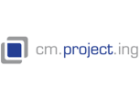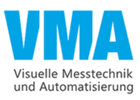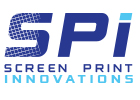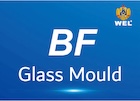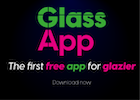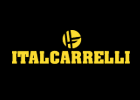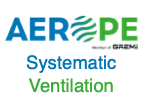In a notable development last year, premium glassmaker Hrastnik1860, a member of Vaider Group, successfully pioneered the commercial production of premium glass spirits bottles using hydrogen as the primary energy source.* This significant step was made in collaboration with Bacardi and marks a major advancement toward sustainable production in the glass industry. Hrastnik1860 continues to innovate, utilizing hydrogen to melt glass in one furnace and hybrid technology incorporating up to 40% electricity in another. Following the successful initial production, they have reopened orders and will enable customers to produce glass bottles, including lightweight options, during their ‘Sustainable week’ this December.
“At Hrastnik1860, we have embarked on a pioneering journey by integrating hydrogen as a primary fuel source in our glass production processes. In 2023, we achieved a significant milestone by utilizing more than 60% of hydrogen for our combustion needs during the production of 200,000 of Bacardi’s 70cl premium glass bottles. This transition resulted in a reduction of more than 30% in direct CO2 emissions from combustion compared to fossil fuel – natural gas – combustion,” said Matevž Fazarinc, CEO of Hrastnik1860.
Fazarinc emphasized Hrastnik1860’s commitment to reducing greenhouse gas emissions in production processes and anticipated a significant increase in their production of sustainable, low-carbon glass packaging. Their dedication to sustainability is recognized and valued by consumers, who increasingly prefer products that are not only high-quality and visually appealing but also environmentally responsible. “This is also one of the reasons why we have decided to have a ‘Sustainable week’ in December and renew this type of production. We have already opened orders for interested customers,” added Fazarinc. Hrastnik1860 has already successfully produced glass bottles with hydrogen technology for brands such as Bacardi and Chateau d‘Esclans.
A clean fuel for a sustainable future
Hydrogen is emerging as a crucial energy vector in the drive toward sustainable industrial processes, particularly in energy-intensive industries, such as glass manufacturing. As a clean fuel, hydrogen only produces water vapour when burned, eliminating direct carbon dioxide emissions typically associated with the combustion of fossil fuels. Additionally, hydrogen can be easily produced from renewable energy sources via electrolysis, further enhancing its potential as a sustainable and versatile energy solution. These characteristics make it an excellent alternative for industries aiming to rapidly and significantly reduce their carbon footprint.
“Our successful adoption of clean hydrogen technology has not only reduced our carbon footprint but also reinforced our position as a leader in the European premium glass packaging market. This shift towards hydrogen utilization presented several challenges, particularly in maintaining the high-quality standards expected of our products. However, through successful R&D efforts, we have effectively managed to use hydrogen in our furnaces without compromising the quality or efficiency of glass production,” explained Hrastnik1860 as they continue to innovate and expand their use of sustainable technologies.
As Hrastnik1860 is committed to investing in a more sustainable future, they are very pleased that various customers have shown interest in producing bottles using this advanced technology, especially for the premium segment, where quantities are often smaller. Production with hydrogen as the primary energy source allows their customers to order series starting from as low as 30,000 pieces, which is particularly appealing for producers of extremely exclusive premium spirits, aiming for purest possible glass – the so-called ‘extra white flint,’ especially for limited editions.
Lightweight bottles – A transformative approach
Redesigning bottles to be lighter is another factor contributing to sustainability by reducing energy consumption, water usage, and CO2 emissions. At Hrastnik1860, their lightweight initiative extends beyond mere sustainability – it is a transformative approach that combines customer-driven design changes compatible with their production techniques to enhance overall efficiency and product performance. Redesigning bottles to be lighter optimizes operational and logistical aspects of glass manufacturing and transport costs. Lighter bottles require less raw material, significantly reducing the energy needed for production.
Additionally, this kind of production also consumes less water, a critical factor in conserving this precious resource. Together, reductions lead to lower operational costs and minimize the strain on resources, directly benefiting clients with cost savings. “Our design studio works closely with customers to create lightweight premium bottles that meet their specific needs while not compromising on brand style,” emphasized Fazarinc.
Environmental Certification
Hrastnik1860 offers their clients expertise in environmental certification, leveraging the standardized framework of the Greenhouse Gas (GHG) Protocol to help them accurately measure and manage their carbon emissions. “Additionally, we provide support for achieving carbon neutrality through carefully selected carbon offsetting projects tailored to clients’ products. Our team guides clients from emission assessment through the development and implementation of strategies aimed at reducing or offsetting emissions, ensuring precise and compliant carbon management,” explained Hrastnik1860. By assisting clients in obtaining the appropriate environmental certifications for their specific production runs, they enable clients to demonstrate their commitment to environmental responsibility and enhance their market competitiveness with the highest level of transparency.
“We are confident that together with our customers, who share a similar green vision, we are setting the stage for a sustainable transformation that will significantly impact the glass industry,” concluded Hrastnik1860’s CEO, Matevž Fazarinc.
*The implementation of Clean Hydrogen technology was partially achieved through the H2GLASS project, co-funded by the European Union.




